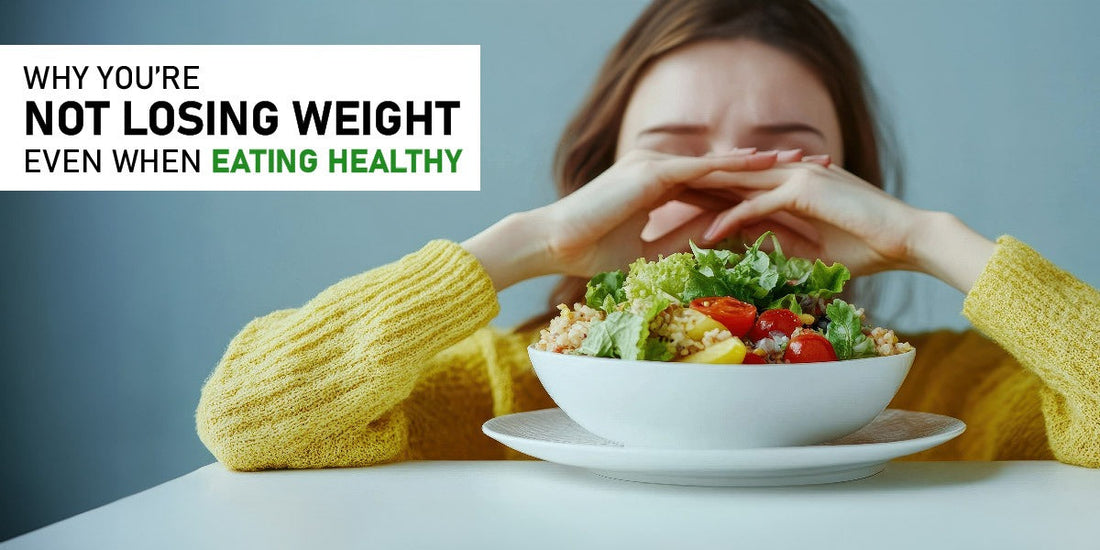
Why You’re Not Losing Weight Even When Eating Healthy
byMany people believe that eating healthy should automatically lead to weight loss. However, despite following a seemingly nutritious diet, some individuals struggle to shed excess weight. If you're experiencing this frustration, several factors could be hindering your progress. Let’s break down the common reasons why you’re not losing weight even when you’re eating healthy.
1. You’re Consuming More Calories Than You Burn
Even healthy foods contain calories, and if you consume more than your body burns, weight loss won’t occur.
Solution: Track your daily calorie intake using apps like MyFitnessPal or Fitbit to maintain a calorie deficit.
2. Hidden Calories in “Healthy” Foods
Not all healthy foods are low in calories. Nut butters, avocados, nuts, smoothies, and protein bars can be calorie-dense. Additionally, salad dressings, sauces, and oils can significantly increase calorie intake.
Solution: Practice portion control and read food labels to avoid consuming excess hidden calories.
3. You’re Not Eating Enough Protein
Protein plays a key role in metabolism, satiety, and muscle maintenance. A lack of protein can lead to increased cravings and muscle loss instead of fat loss.
Solution: Include lean proteins like chicken, fish, tofu, Greek yogurt, and whey protein in your diet.
4. You’re Not Strength Training
Weight loss isn’t just about diet—it also depends on muscle mass. Strength training helps boost metabolism and prevents muscle loss while losing fat.
Solution: Incorporate resistance training at least 3-4 times a week to improve muscle tone and fat loss.
5. Poor Sleep and High Stress Levels
Lack of sleep and high stress increase cortisol levels, leading to cravings, overeating, and fat retention—especially around the belly.
Solution: Prioritize 7-9 hours of quality sleep per night and practice stress management techniques like meditation, yoga, or deep breathing exercises.
6. You’re Not Drinking Enough Water
Dehydration can slow metabolism and lead to hunger misinterpretation, making you eat more than necessary.
Solution: Drink at least 8-10 glasses of water daily and stay hydrated throughout the day.
7. You’re Relying Too Much on Diet Foods
Packaged diet foods labeled as “low-fat” or “sugar-free” may contain artificial additives, preservatives, and hidden sugars that can hinder weight loss.
Solution: Focus on whole, unprocessed foods and limit packaged diet products.
8. Your Hormones May Be Affecting Your Weight Loss
Hormonal imbalances related to thyroid function, insulin resistance, or PCOS can make weight loss more challenging.
Solution: Consult a healthcare professional for proper diagnosis and treatment if you suspect hormonal issues.
Final Thoughts
Eating healthy is just one part of the weight-loss equation. If you’re not seeing results, consider factors like calorie intake, protein consumption, exercise habits, stress levels, hydration, and potential hormonal imbalances. By addressing these aspects, you can break through weight-loss plateaus and achieve your fitness goals.








